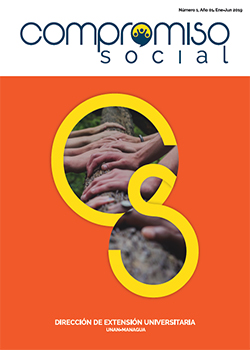Sustainable Development Goals and quality education: Challenges in Central America Region
DOI:
https://doi.org/10.5377/recoso.v1i1.13392Keywords:
Inclusive education, sustainable development, Sustainable Development Goal, quality, relevance, curriculum, Social ProjectionAbstract
The crisis of the university in the region, occurs at the level of management, financing, accreditation of quality and curriculum. The university must fulfill the social function that society expects from it, not only in equity in access, but also in quality and relevance in all its substantive functions, to propose proposals for solutions to the priority problems of its environment, for a adequate human and social sustainable development.
Objective 4 of the SDGs sets out “Ensure inclusive, equitable and quality education and promote lifelong learning opportunities for all.”
The Central American University Council (CSUCA) has agreed for the period 2016-2026 the IV Plan for the Regional Integration of Higher Education of Central America and the Dominican Republic (PIRESC IV), which was built dynamically and participatively from the Results of the VIII Central American University Congress, held in Panama on May 26 and 27, 2016. From the experience of CSUCA and PIRESC IV, the following elements and challenges for a Regional Model of Higher Education are derived as contributions towards the 2030 Agenda, these are:
- The urgency of innovating the processes of learning, research and social projection, to expand coverage and improve access to higher education.
- Creatively address the emergence of new and more specialized professions and subprofessions.
- The need for higher education, more inclusive, equitable and relevant to the real needs of each country or region through its close relationship with society and with the State.
- The need to internationalize its different programs at the level of teaching-learning, research and social extension or projection.
- The need for continuous improvement of the quality of higher education in learning processes, in research and extension, at acceptable international levels, prioritizing institutional processes (CRES 2018) before programs.
Finally, we must recognize that, despite advances and achievements in very few universities, in the region we have not been able to consolidate a new university model, in which the production of knowledge and the application of its results predominate, and not its mere transmission, to contribute effectively in solving the problems of our society, especially the most vulnerable.
1919




